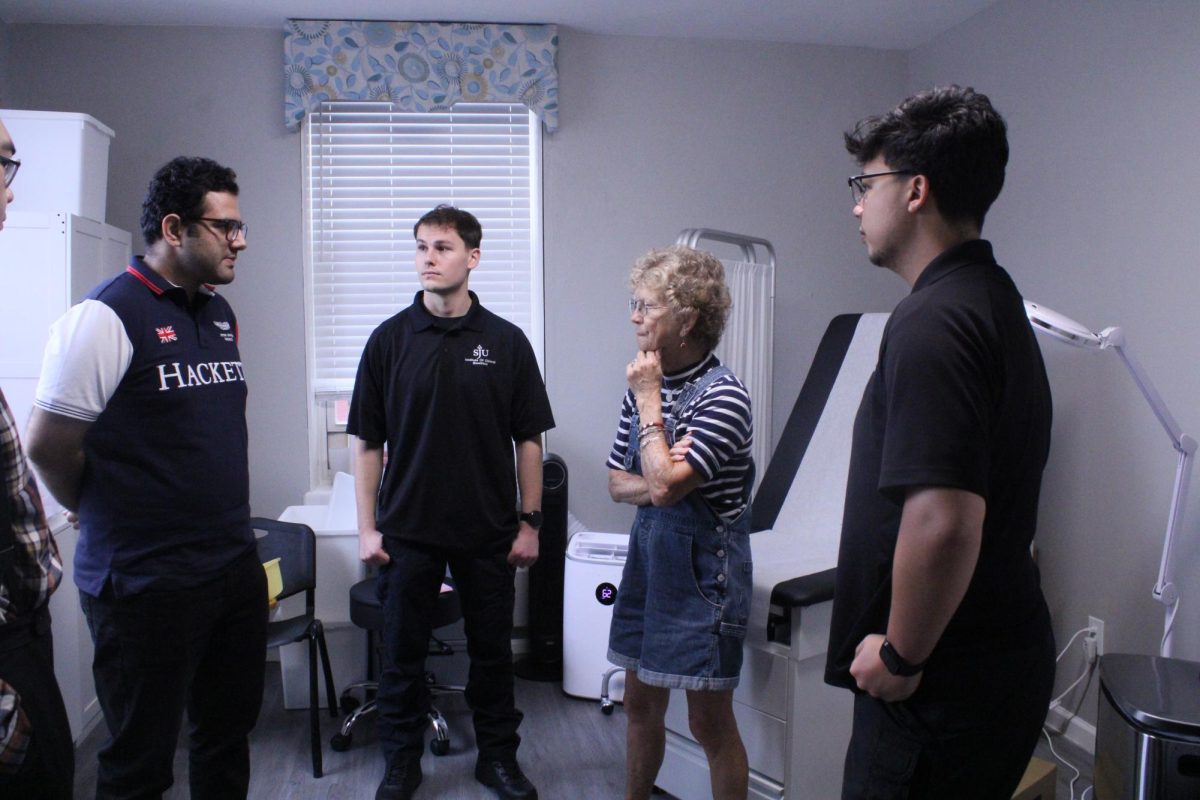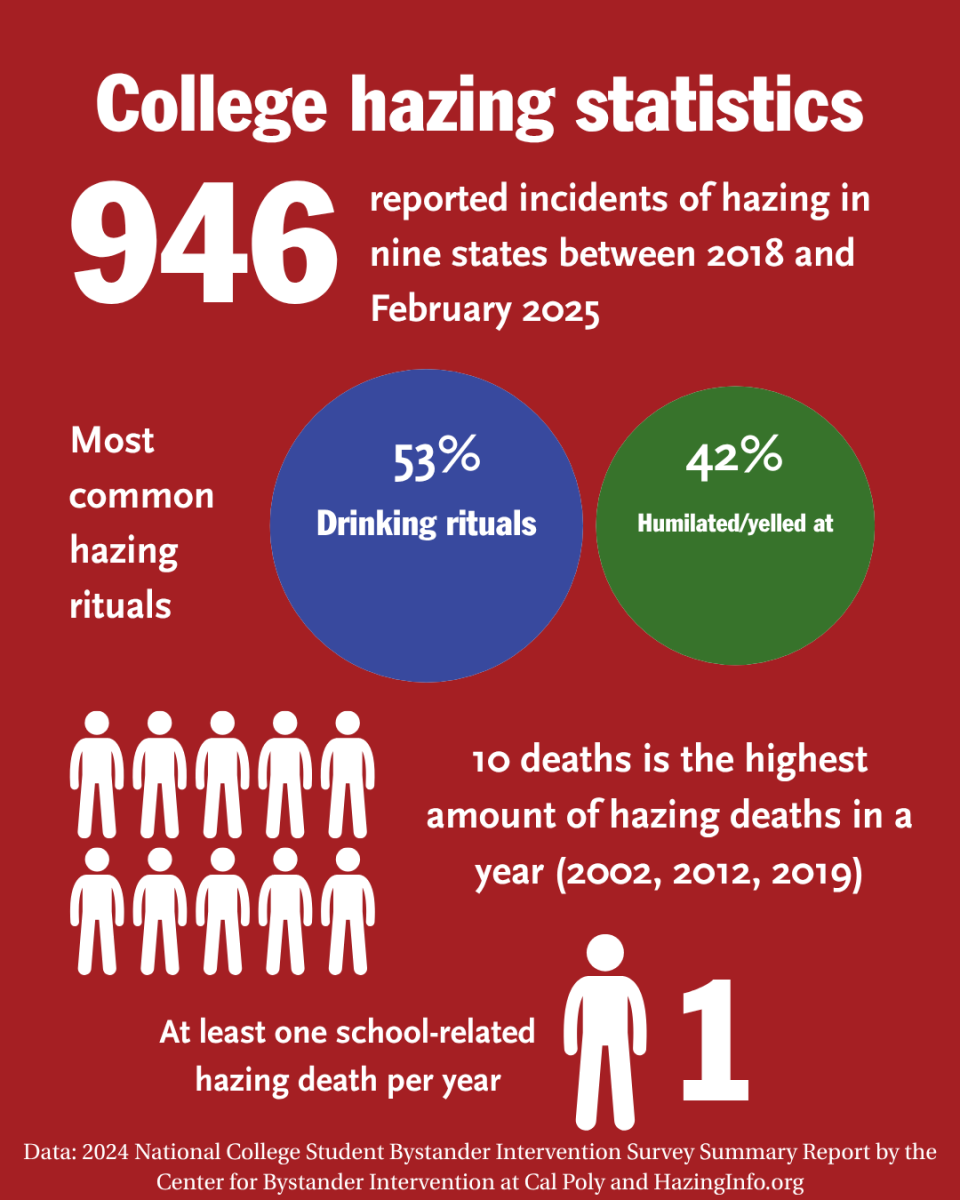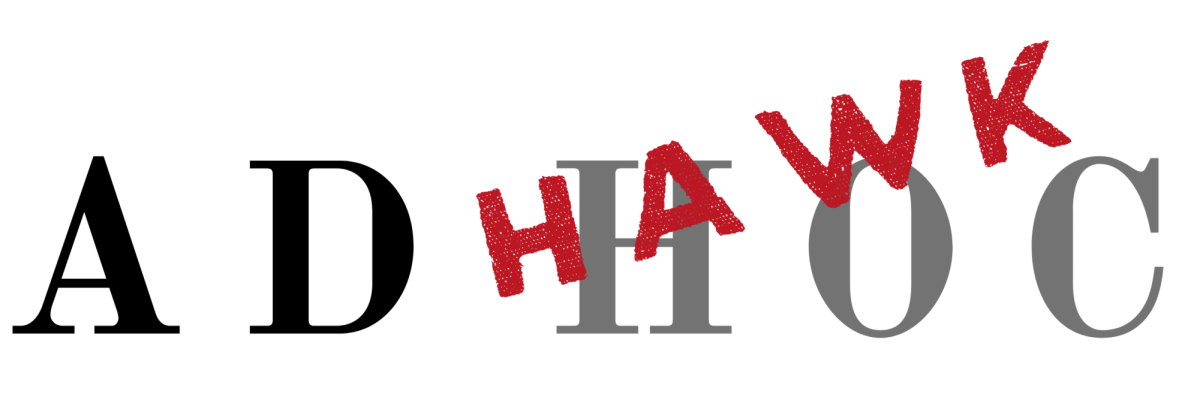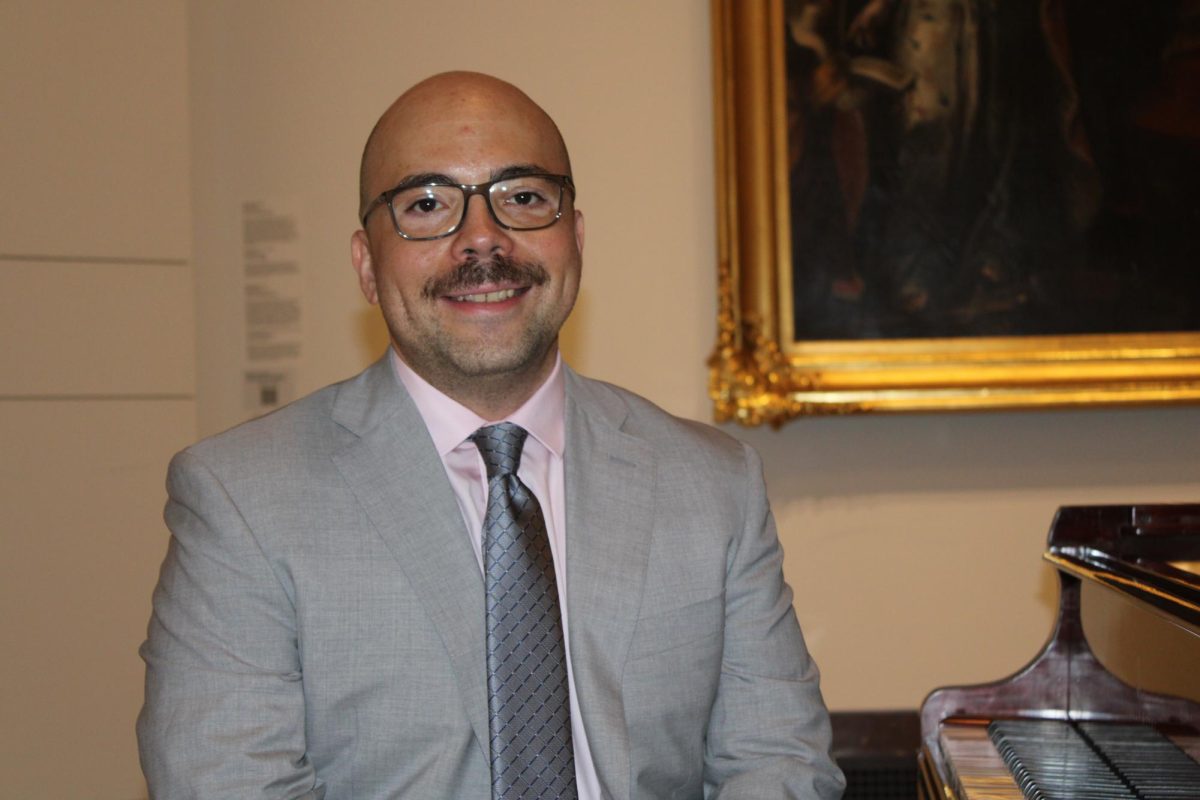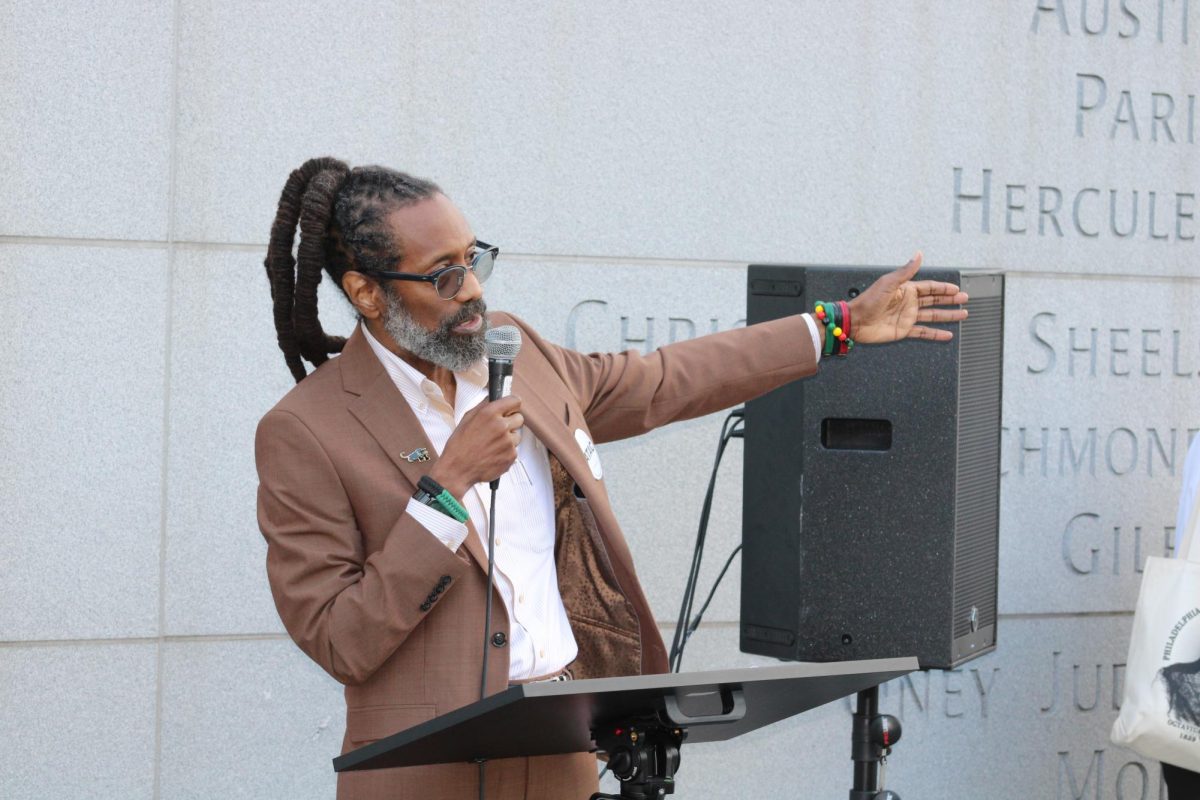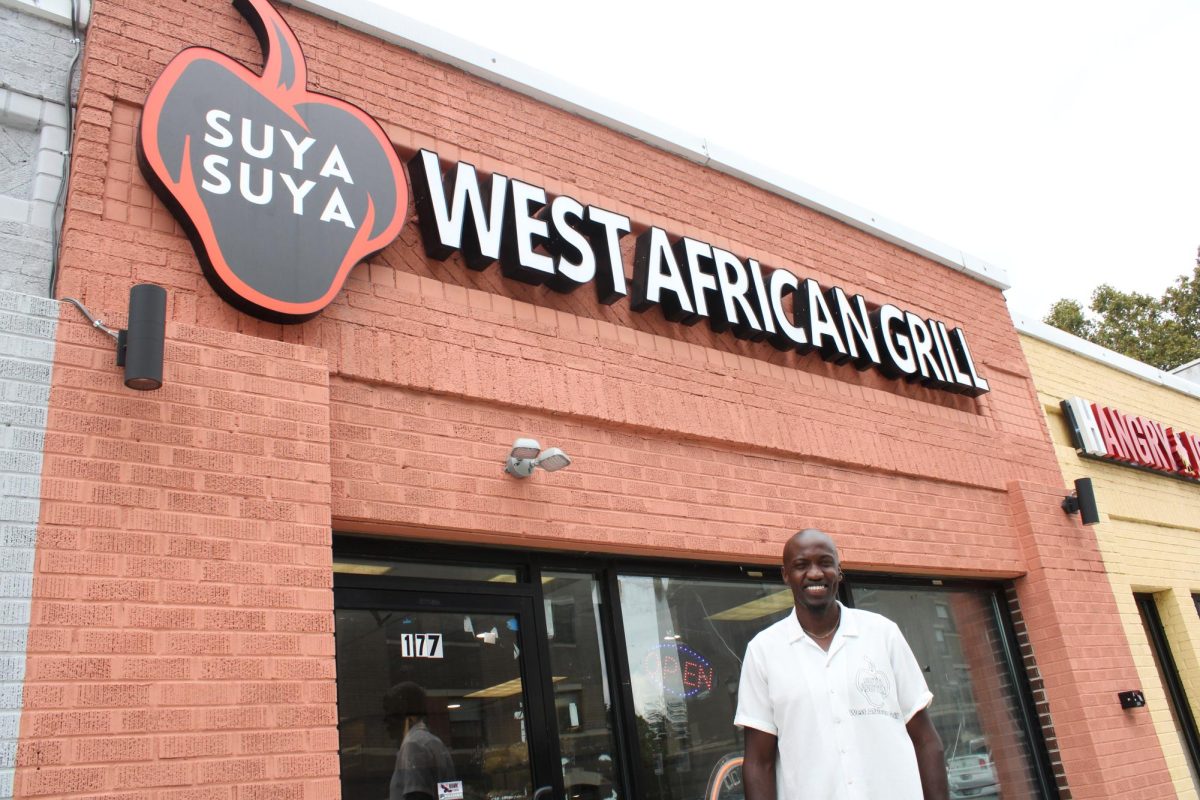This year, St. Joe’s formally recognized National Hazing Prevention Week, with Michael Busch, assistant director of the Community Standards, spearheading the initiative alongside St. Joe’s own anti-hazing campaign, Hawks Over Hazing. NHPW took place from Sept. 22-26.
St. Joe’s Office of Community Standards, as well as the Office of Student Leadership and Activities, hosted daily events throughout the week, including a student-made chalk mural, a Hawks Over Hazing presentation and a film screening of “The Lonely Dog,” a short film about hazing from the University of Virginia based on real events.
NHPW first launched in 2007 through the Hazing Prevention Network as a movement designed to raise hazing awareness and provide healthier alternatives to hazing within tight-knit organizations. StopHazing defines hazing as “any activity expected of someone joining or participating in a group that humiliates, degrades, abuses or endangers them, regardless of a person’s willingness to participate.”
Beth Hagovsky, Ed.D., director of Student Leadership and Activities, said while hazing is typically associated with Greek life organizations, it’s an issue that can present itself in any group setting.
“Very traditionally and stereotypically, people think of hazing as only a Greek-lettered organization problem, when in fact, it affects any community, athletics, club sports, regular student organizations, possibly even just friend groups,” Hagovsky said.
Hagovsky said anything students pressure others to do that they wouldn’t normally do is considered hazing, which students need to be reminded of.
“There’s such a power dynamic at play that students need to be aware of and conscious of when they’re asking students or demanding students to do something,” Hagovsky said. “Just because someone says ‘yes’ doesn’t mean they want to, and that’s 100% hazing.”
According to its website, all Hawks Over Hazing policies adhere to the federal Stop Campus Hazing Act, signed into law during the Biden administration, and comply with full hazing transparency under the Campus Hazing Transparency and Timothy J. Piazza Anti-Hazing Report, which outlines the first steps of reporting hazing and describes investigated hazing incidents dating back to the 2020-2021 academic year.
Hawks Over Hazing introduces their initiative at summer orientation for incoming first-years, provides online training modules for new students to complete and offers year-round student workshops and small-group conversations around the topic of hazing.
Busch said the anti-hazing policies included in the Hawks Over Hazing implementation are essential to keeping student organizations on campuses alive and healthy.
“Student organizations are the lifeblood of a college campus, that pumping blood through the veins of the body of campus,” Busch said. “Helping these groups and organizations be healthy is extremely important because they do have such a responsibility to the student experience on campus.”
According to data from HazingInfo.org, there have been 125 student deaths from hazing since 2000. Since 2020, there have been 16 hazing-related student deaths.
Faith Adedokun ’27, secretary of student affairs for University Student Senate, said hazing is a subject that, until this year, has not been talked about enough, and that students in and out of student-led organizations need to understand its severity.
“Hazing isn’t cool,” Adedokun said. “Hazing isn’t a fundamental part of the college experience. It can affect college campuses anywhere and can lead to serious injury or death. As a responsible student of the Saint Joseph’s University community, you should feel empowered to report it.”
Hagovsky said there are many other opportunities to make connections with prospective members of any organization and that the cycle needs to be broken at St. Joe’s.
“We can make connections without being asked to do things that we shouldn’t otherwise be asking people to do,” Hagovsky said. “That’s not why anybody joins anything. No one joins an organization or goes out for something because they want to be hazed.”
Busch said hazing education couldn’t be more important for the livelihood of college campuses and the general student experience, highlighting the importance of initiatives like NHPW and Hawks Over Hazing.
“Ultimately, hazing education supports the student experience to create a healthy one,” Busch said. “Research tells us that when students get involved during their college experience, they’re more likely to be successful, more likely to graduate on time, do better with academics and the whole of college generally.”
While National Hazing Prevention Week came to a close Sept. 26, the Hawks Over Hazing initiative is ongoing, with the hope that conversations begun this week continue to make campus more safe, inclusive and educated about hazing. Adedokun said the Jesuit mission of St. Joe’s is always at the forefront, and hazing could not stray further away from cura personalis, or “care for the whole person.”
“Saint Joseph’s University cannot, and should not, stand for hazing,” Adedokun said. “All of us that believe in these Jesuit values that we pay money to live out should know better.”


